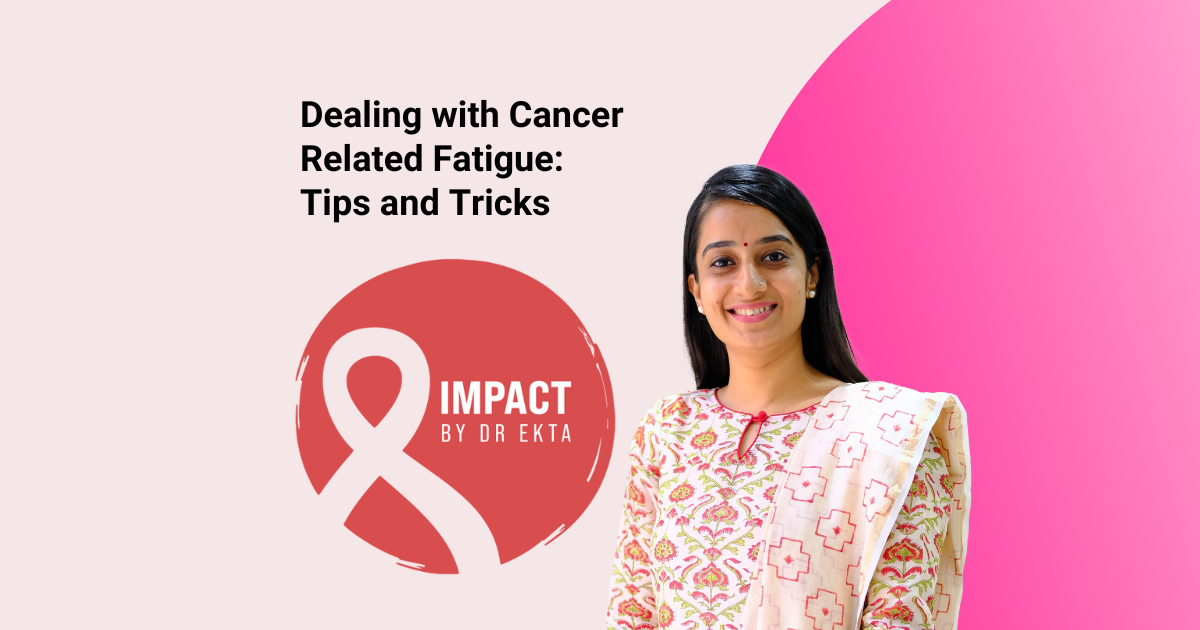One of the most common complaints I hear from my patients undergoing cancer treatment is the persistent fatigue that seems to overshadow their daily lives. Cancer-related fatigue is different from the tiredness we all experience after a long day. It’s more profound, more persistent, and it can feel as though no amount of rest is enough to alleviate it. Understanding this unique type of fatigue and finding ways to manage it is an essential part of the journey toward healing.
What is Cancer-Related Fatigue?
Cancer-related fatigue is not just a side effect of cancer treatment; it can also be a direct result of the disease itself. Unlike regular fatigue, this exhaustion is not easily relieved by sleep or rest. It can be caused by a variety of factors, including:
- The effects of cancer on the body, such as inflammation or changes in metabolism.
- Treatments like chemotherapy, radiation, and immunotherapy, which can deplete energy reserves.
- Emotional stress and anxiety associated with a cancer diagnosis.
- Nutritional deficiencies or anemia, which are common during cancer treatment.
This type of fatigue can feel overwhelming, making it challenging to perform even the simplest tasks. However, with the right strategies, it is possible to manage and mitigate its effects.
Tips and Tricks to Manage Cancer-Related Fatigue
Over the years, I’ve worked closely with patients to develop practical approaches to reduce the burden of fatigue. Here are some of the strategies that have proven most effective:
1. Prioritize Rest and Sleep
While cancer-related fatigue doesn’t fully resolve with rest, prioritizing good sleep hygiene can still make a difference. Here are some tips:
- Stick to a consistent sleep schedule by going to bed and waking up at the same time every day.
- Create a relaxing bedtime routine to signal your body that it’s time to unwind.
- Avoid caffeine, alcohol, and heavy meals in the evening.
- Ensure your sleep environment is quiet, dark, and comfortable.
2. Stay Physically Active
It may seem counterintuitive, but gentle exercise can help combat fatigue. Physical activity boosts energy levels by improving circulation and releasing endorphins, the body’s natural feel-good chemicals. Activities like walking, yoga, or light stretching are particularly beneficial for cancer patients.
Start slowly and listen to your body. Even a 10-minute walk can make a difference. Over time, you can gradually increase the duration and intensity of your exercise routine.
3. Maintain a Balanced Diet
Nutrition plays a critical role in managing cancer-related fatigue. Eating a balanced diet provides your body with the energy it needs to heal and recover. Focus on:
- Consuming a variety of fruits, vegetables, whole grains, and lean proteins.
- Staying hydrated by drinking plenty of water throughout the day.
- Eating small, frequent meals to maintain energy levels.
If you’re struggling with appetite or nausea, consult a dietitian who can suggest tailored meal plans to meet your needs.
4. Manage Stress and Emotions
Stress and anxiety can amplify feelings of fatigue. Finding healthy ways to cope with emotional challenges is essential. Techniques that I often recommend to my patients include:
- Mindfulness and Meditation: Practices like deep breathing, guided meditation, or mindfulness exercises can help calm the mind and reduce stress.
- Counseling and Support Groups: Talking to a therapist or joining a cancer support group can provide emotional relief and a sense of community.
- Journaling: Writing down your thoughts and feelings can help you process emotions and gain perspective.
5. Set Realistic Goals and Pace Yourself
It’s important to acknowledge your limits and adjust your daily activities accordingly. Prioritize tasks that are most important to you and delegate or postpone less critical responsibilities. Break larger tasks into smaller, manageable steps, and allow yourself plenty of time to rest in between.
6. Consider Complementary Therapies
Complementary therapies such as acupuncture, massage, or aromatherapy can help alleviate fatigue for some patients. These therapies promote relaxation, reduce stress, and improve overall well-being. Always consult your healthcare provider before starting any new therapy to ensure it’s safe and appropriate for your condition.
7. Communicate with Your Healthcare Team
Never hesitate to discuss your fatigue with your oncologist or care team. Persistent fatigue may be a sign of an underlying issue, such as anemia or thyroid dysfunction, which can often be treated. Your doctor may also adjust your treatment plan or recommend medications to help manage symptoms.
The Role of Loved Ones in Managing Fatigue
Dealing with cancer-related fatigue is not something you have to face alone. Friends and family members can provide invaluable support. Encourage them to:
- Assist with household chores or errands to lighten your load.
- Accompany you to medical appointments for emotional support.
- Be patient and understanding, recognizing that fatigue is a real and challenging symptom of cancer.
Staying Hopeful
Cancer treatment is a demanding process, and fatigue can sometimes feel like an additional hurdle. However, it’s important to remember that fatigue is a temporary symptom, and with the right strategies, it can be managed effectively. Each step you take—no matter how small—brings you closer to feeling better and reclaiming your energy.
Final Thoughts
Cancer-related fatigue is a common yet manageable aspect of the cancer experience. By adopting a holistic approach that includes physical, emotional, and nutritional strategies, you can regain control over your energy levels and improve your overall quality of life.
If you or a loved one is dealing with cancer-related fatigue, know that help is available. Reach out to your healthcare team, stay proactive, and remember that you are not alone on this journey. Together, we can tackle the challenges of cancer treatment and work toward a brighter, healthier future.

